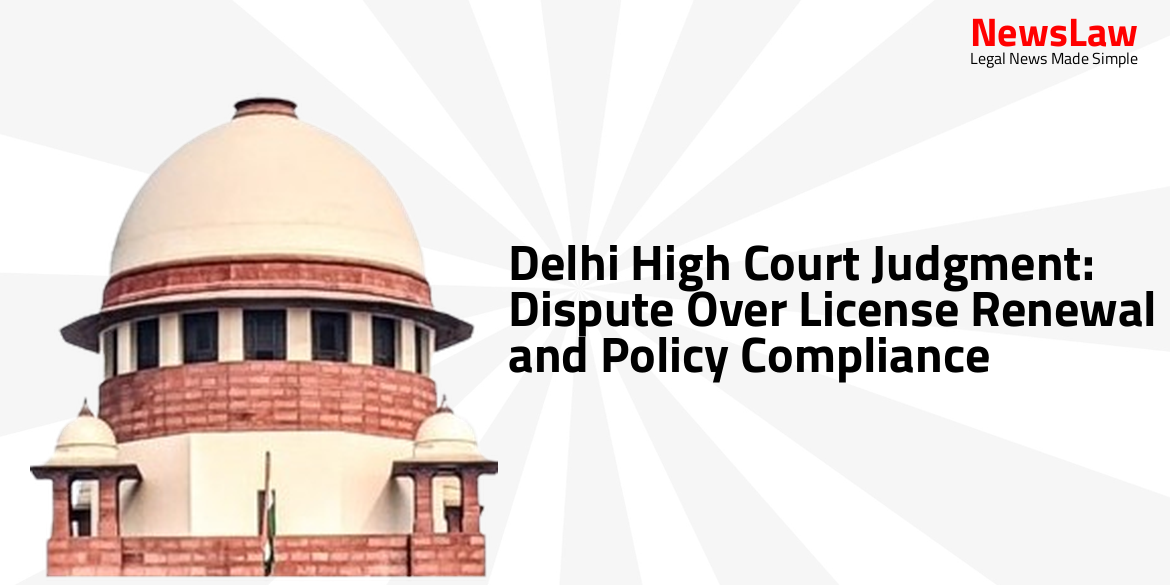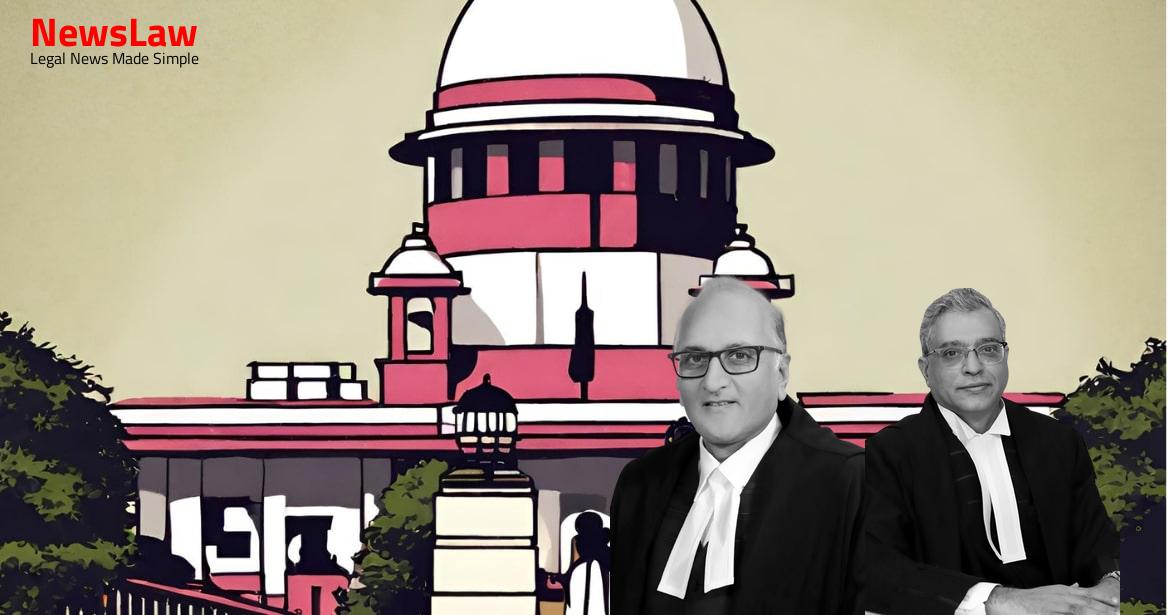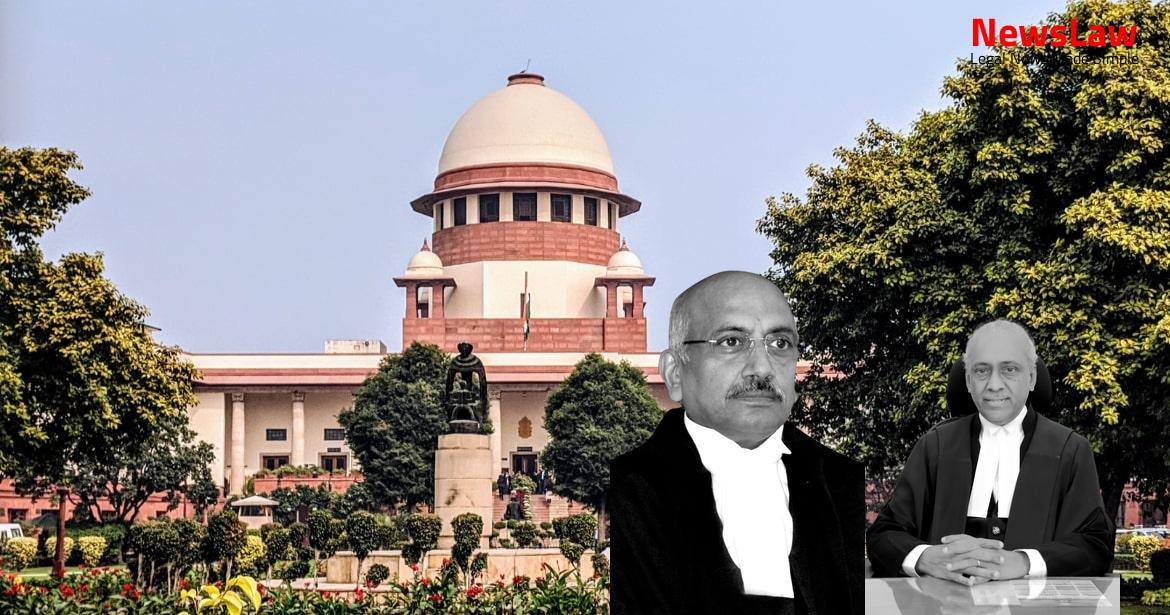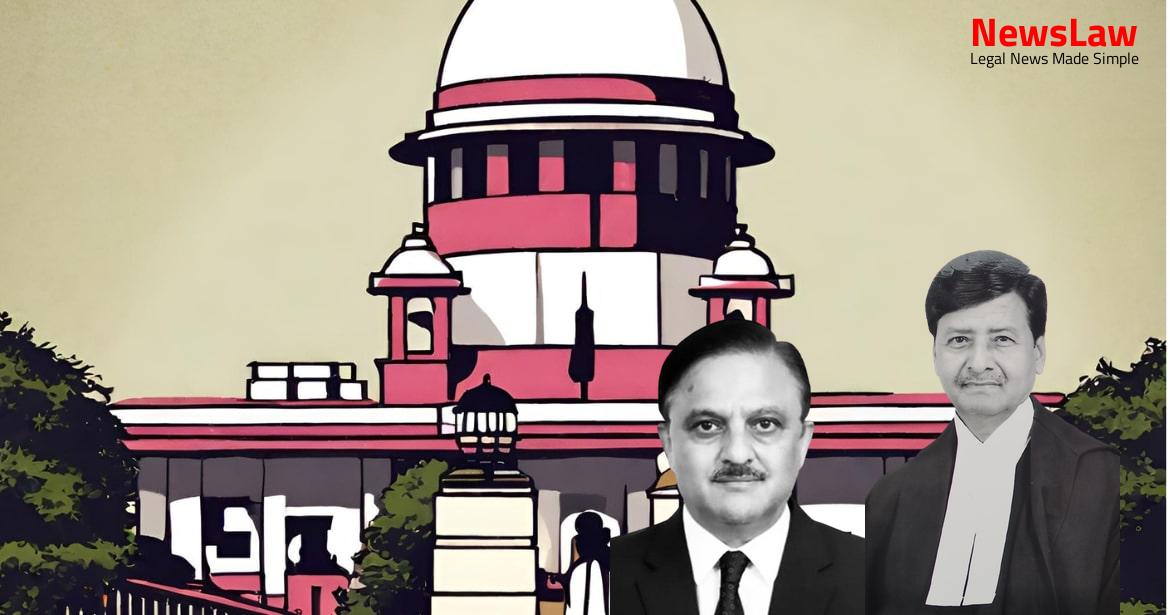In a recent Delhi High Court judgment, a dispute over license renewal and policy compliance was settled. The case involved multiple petitioners and the respondent, Northern Railway, regarding the conversion of stalls to Multipurpose Stalls (MPS) and subsequent license agreements. The court examined the validity of the 2017 Policy, legitimate expectations of the petitioners, and the impact of force majeure events on the license tenure. Let’s delve into the details of this noteworthy legal case.
Facts
- Petitioner no.1 operates three MPS at Bareilly Railway Station.
- Petitioner no.2 operates one MPS at Moradabad Railway Station.
- Petitioner no.3 operates one MPS at Haridwar Railway Station.
- The petitioners were originally running stalls/trolleys as per Commercial Circular No. 96 of 2007.
- In 2017, Northern Railway compelled the petitioners to convert their stalls/trolleys to MPS under the 2017 Policy.
- The petitioners and Northern Railway entered into Master License Agreements to formalize the license arrangements.
- The agreements had a five-year tenure from the date of conversion till 21.12.2022 with no provision for extension or renewal.
- Due to a force majeure event, the tenure was extended till 27.02.2023 by Northern Railway citing Covid-19 lockdown.
- The petitioners were directed to vacate their MPS by 27.02.2023 as per the letters from Northern Railway.
- The Master License Agreements and the extension letters have been challenged by the petitioners in the present petitions.
Arguments
- The petitioner’s licenses have expired as per the 2017 Policy which does not allow for renewal or extension.
- The 2017 Policy is legally sound and non-arbitrary, applying universally to stall/trolley owners without discrimination.
- Similar challenges against the 2017 Policy have been dismissed by the Karnataka High Court.
- The petitioners had benefited from the 2017 Policy’s five-year tenure and cannot now contest the same policy upon license expiry.
- The petitioners claim that clause 5 of the 2017 Policy violates constitutional rights.
- The petitioners claim that they were coerced into signing the new policy, which did not allow for renewal.
- The petitioners argue for a renewal of their licenses based on a legitimate expectation and fundamental rights.
- The petitioners challenge the arbitrary nature of a 68-day contract extension due to Covid-19.
- The petitioners allege conversion to MPS units under coercion and unequal bargaining power.
- The court is urged to consider the jurisdiction and maintainability of the petitions.
- The petitioner signed a contract for a period of five years which was non-renewable.
- The petitioner cannot claim ignorance as the terms of the contract were clearly stated in the letter of award.
- The petitioner enjoyed the benefits of the contract for five years with full awareness.
- The petitioner cannot now seek to revert to a previous policy that is no longer in effect or applicable to them.
- The Karnataka High Court rejected the petitioner’s argument that the non-renewal of the license contradicted a Supreme Court judgment pertaining to a different policy.
- The Supreme Court judgment was specific to Catering Policy, not the Multipurpose Stall Policy under which the petitioner’s contract fell.
- The petitioner cannot seek to benefit from outdated policies after the successful completion of their contract.
Analysis
- The contention of the petitioners that they were compelled to convert their stalls/trolleys to MPS is untenable.
- The licenses of the petitioners were extended by 68 days on account of a force majeure event.
- The petitioners cannot claim a vested right entitling them to perpetual renewal of the license granted to them.
- The challenge to Clause 5 and 11 of the 2017 Policy is clearly unsustainable.
- The petitioners’ claim of a “legitimate expectation” for the renewal of their licenses lacks merit.
- Clause 5 of the 2017 MPS Policy explicitly states no extension or renewal of MPS units, but allows participation in fresh bids if eligible.
- The courts cannot mandate license renewal in derogation of the 2017 Policy and express terms of the license.
- A license only grants a right to use the grantor’s property, revocable at the grantor’s will.
- The petitioners are at liberty to participate in new tenders floated by the railways.
- The challenge to Clause 5 and 11 of the 2017 Policy, as per the analysis, is deemed unsustainable.
- Original names of parties are not mentioned.
- This part of the judgment contains the analysis or decisions related to a specific section called STA.
- The analysis or decisions provided are crucial for understanding the overall judgment.
- No specific details about the content of STA section are given in this summary.
- In the judgment, it was emphasized that a writ of Mandamus cannot be issued to direct the respondents to enact laws or frame rules, even under the wider powers conferred by Article 226 of the Constitution.
- Mandamus is applicable for enforcing a fundamental right, statutory right, or fundamental duty related to the enforcement of a fundamental or statutory right. The breach or threat of breach of such rights is crucial for issuing a writ of Mandamus.
- The court clarified that it cannot delve into the intricacies of individual situations to challenge the extension granted to licensees, as long as the basis for the decision is disclosed by the authorities.
- It was highlighted that while the courts have the authority to declare laws unconstitutional, they cannot virtually act as appellate authorities in assessing the extent of extensions granted to licensees.
- Distinguishing between judicial review of a policy decision and issuing a mandamus to frame policy in a specific manner, it was underscored that these are distinct processes.
- A legitimate expectation does not automatically guarantee relief, as public interest, policy changes, or valid reasons by decision-makers may affect the outcome. However, this does not justify arbitrary decisions by public bodies like the respondent Board in refusing to renew licenses.
- The judgement stressed that under the constitutional system, public bodies do not possess arbitrary powers, citing previous cases to support the view that decisions on license renewals must have rational justifications.
- Individual license agreements and the 2017 Policy contain an arbitration clause.
- Petitioners can invoke arbitration clause if aggrieved by insufficiency of extension due to Covid-19 or wish to claim damages.
- Petitioners can initiate appropriate proceedings through arbitration clause.
Decision
- The petitioners opted to convert their existing stalls/trolleys into Multi Purpose Stalls (MPS) as per the 2017 Policy.
- They were given a tenure of 5 years from the date of conversion.
- A period of 3 months was granted to the petitioners to vacate the stalls after the extended license period.
- The petitioners had requested the conversion of their miscellaneous stalls/trolleys to MPS.
- The court found no merit in the petitions and dismissed them.
- The rights and remedies of the petitioners in this regard are kept open.
- All pending applications were disposed of.
- The court deemed it appropriate to entertain and adjudicate the petitions due to common issues arising for consideration in the batch of matters.
- The present petitions were held to be maintainable.
Case Title: MOHAMMAD SALEEM Vs. UNION OF INDIA & ORS. (2024:DHC:4452)
Case Number: W.P.(C)-10757/2023



